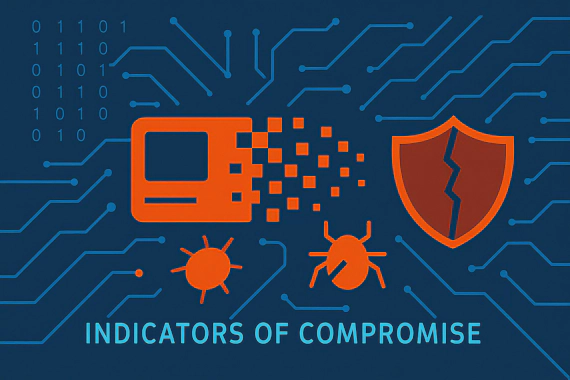
Collecting Threat Intelligence
Dark Web Monitoring Threat Intelligence Best Practices
How is threat intelligence collected? Threat intelligence collection isn’t some magical process where data just appears …

Learn how to turn threats hidden in the dark web into actionable threat intelligence.
• Google and other "regular" search engines cannot find or index dark web content by design.
• The dark web requires specialized tools like the Tor browser to access hidden data.
• Five search engines that can help navigate the dark web: Ahmia, Torch, DuckDuckGo, Haystack, and OnionLinks.
• Security teams need continuous dark web monitoring to detect leaked credentials and company data before they’re exploited.
As of 2023, over 343 billion credentials were leaked and freely available on the dark web.
The problem is, the dark web isn’t indexed by regular search engines.
And unlike the regular web, you can’t even access it from a standard browser.
Finding data on the dark web can be challenging, in this post we’ll cover how the dark web works, how to access it, and the top 5 dark web search engines.
Unlike the regular internet, the Tor network can’t be accessed via standard browsers.
However once connected via a specialized browser (e.g. Tor browser), you can use a dark web search engine to locate onion links.
Here are the top five dark web search engines to help you navigate the dark web:
Ahmia is a popular dark web search engine that indexes .onion websites, making them accessible through the Tor network.
It focuses on providing a safer browsing experience by filtering out illegal content and blocking harmful sites.
Unlike many dark web search engines, Ahmia is accessible on both the surface web and Tor, allowing broader access to its indexed content.
It also promotes transparency and security by openly sharing its source code and inviting contributions.
Torch is one of the oldest and most well-known dark web search engines, providing access to a vast index of .onion websites.
It has a simple interface and is widely used for searching both legal and illicit content on the dark web.
Torch is popular because of its large database, but it doesn’t filter out illegal material, so users must navigate with caution.
It has a reputation for being fast and effective, though the content it indexes varies widely in quality and legality.
As a result, Torch is often considered one of the leading dark web search engines.
DuckDuckGo is a privacy-focused search engine that doesn’t track users or collect personal data, making it popular among individuals who value anonymity.
While it primarily indexes the surface web, it can also be accessed via the Tor browser and used as a general search engine.
Unlike other dark web search engines, DuckDuckGo doesn’t index illegal content, focusing instead on providing safe, unbiased results.
Haystack is a dark web search engine designed with privacy in mind, similar to Duck Duck Go.
It indexes a wide array of content, including both legal and illegal sites.
It uses a freemium model and offers several features for premium users like access to historical versions of websites.
While not strictly a search engine, OnionLinks provides a directory-style resource that helps users discover various .onion sites across different categories.
Unlike traditional search engines, it organizes dark web links into specific sections, making it easier to navigate and explore different parts of the dark web.
The platform includes a broad mix of content, from forums and marketplaces to privacy-focused resources, though it doesn’t filter out illegal sites, so caution is necessary.
No, conventional search engines like Google cannot be used to access the dark web.
The dark web is a hidden part of the internet that requires specialized software to access.
Google only indexes websites on the open web (freely accessible and public), while dark web sites use .onion domains that are not visible to traditional search engines.
Even if you try searching for .onion sites on Google, they won’t appear in the results because these sites are designed to remain hidden for privacy and anonymity.
While other dark web browsers (like Brave) can support onion links, the Tor Browser is highly recommended because it’s preconfigured with security and anonymity features optimized for the dark web.
The dark web consists of websites that use encrypted .onion domains, which require specific software and protocols to access.
These sites are intentionally hidden to protect the privacy and anonymity of both the site operators and visitors.
The core functionality of the dark web relies on onion routing, a method that encrypts and routes user communications across multiple servers, known as nodes.
This process makes tracing the user’s location and activity nearly impossible.
As a result, the dark web has become a breeding ground for illicit activities because government agencies face significant challenges in identifying the operators behind hidden services.
Cybercriminals often leverage the anonymity to leak sensitive information, like stolen credentials, credit card numbers, or company data.
That’s why security teams need continued visibility into the dark web which enables them to mitigate the risk of data leaks, preventing further damage.
Breachsense’s dark web monitoring solution offers several key features designed to help companies protect their sensitive data:

Dark Web Monitoring Threat Intelligence Best Practices
How is threat intelligence collected? Threat intelligence collection isn’t some magical process where data just appears …

Dark Web Monitoring Best Practices
What Are Indicators of Compromise (IOCs)? Indicators of Compromise (IOCs) are digital clues that attackers leave behind …